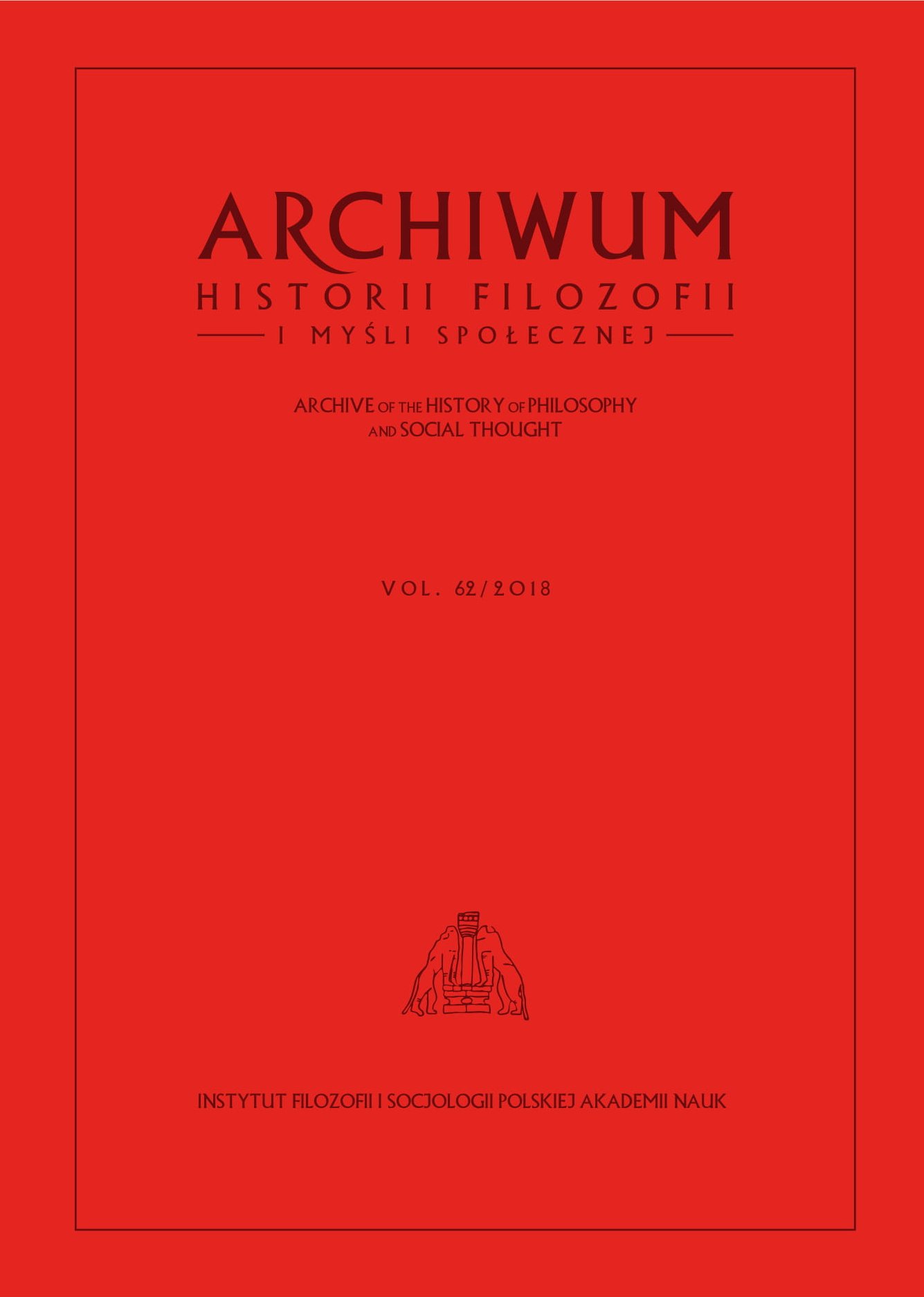Harald Höffding Filozof duński w kręgu myśli polskiego modernizmu
Harald Höffding. A Danish Philosopher and Polish Modernist Thought
Author(s): Edward BonieckiSubject(s): Metaphysics, Recent History (1900 till today), 19th Century Philosophy, Contemporary Philosophy
Published by: Instytut Filozofii i Socjologii Polskiej Akademii Nauk
Keywords: Harald Höff ding; Georg Brandes; Univeristy of Copenhagen; psychologism; antipositivism; critical monism; Polish modernism; Antoni Lange; Henri Bergson;
Summary/Abstract: Harald Höffding (1843–1931) – a Danish philosopher and psychologist, professor at Copenhagen University, and colleague of George Brandes, was among the most influential thinkers of his era, who were laying the foundations for the birth of European modernism, the makers of the anti-positivist turn. A representative of philosophical psychologism, he called his thought “critical monism”. As the author of An Outline of Experimental Philosophy (1882), translated into many European languages, he exerted a considerable influence on the development of Polish modernism. In the years 1890–1937 eleven of his books were published in Polish, and he also maintained personal contacts with Polish colleagues. One of Höffding’s promoters was a distinguished Polish philosopher Adam Mahrburg. Among those Polish writer who were most indebted to the Danish philosopher was Antoni Lange, one of the founders of Polish modernism. In his Psychology Höffding presented his own interpretation of the issue of soul, which was attractive for the modernists, who expressed interest in this issue in literature and art. He redefined the concept of “soul” (“law of synthesis, concentrating action”), limiting the object of psychological research to the symptoms of the soul. He proposed a “psychology without a soul”. He further dealt with the unconscious, without involving any metaphysics, which he consistently shunned. He devoted substantial attention to the issue of will, as a dominant of soul’s life. Höffding’s most important book seems to be his Philosophy of Religion (1901). His work, which could be viewed as an expression of philosophical views on religion representative of his era, was inspired with the biographies of distinguished “religious personalities” He founded his philosophy of religion on the concept of preserving values as a basis for development (formal transformation) and the sustenance of religion. He was also quite in favour of religious individualism, which drew upon the previously formulated persona list theory of cognition (the “personality principle”), practised precisely by the modernists. In the literature that created the poetry of life he saw the space of functioning of religious consciousness. The impact of Höffding’s philosophy and of his entire philosophical milieu was obscured by the very appearance of Henri Bergson in Paris salons, and by the enthusiasm for his entire metaphysics. Yet the Danish philosopher made some attempts to debate with the French philosopher (his book Bergson’s Philosophy, 1914), but in vain. And thus the work of Höffding, a distinguished Danish philosopher, sank into oblivion.
Journal: Archiwum Historii Filozofii i Myśli Społecznej
- Issue Year: 62/2017
- Issue No: 62
- Page Range: 85-110
- Page Count: 26
- Language: Polish

